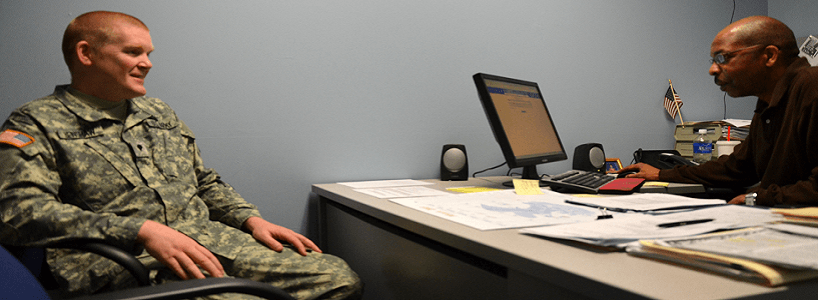Many businesses could (and would) hire more veterans if they looked beyond the information in the resume and also considered the unique capacities a veteran brings to the table. Yes, what that individual did in the past can be an indicator of what they can do in the future, but many veterans’ resumes are cast to the side because they might not have a degree, the “right” bachelor’s degree, an advanced degree, or a whole host of other prerequisites that counted them out.
However, the military had enough confidence in that person while serving to put them in a leadership position in a combat zone where a wrong decision could mean fellow servicemembers getting killed or maimed for life. Or giving them the responsibility to manage and account for millions of dollars’ worth of equipment, some of which most likely required a security clearance to operate. Yet, that person is not viewed as capable for that civilian position?
Is a Focus on Soft Skills Leaving Out Veterans?
One career field that commonly disservices veterans are jobs that require what is called social-emotional skills – jobs that require interacting with people. To prove that statement, let’s look at a recent study from Duke University. In their research, they found that employers perceived veterans better at working with “things” rather than with people. The Senior Author of the research concluded that, “When choosing between two equally-qualified job candidates, the average person and even prospective employers show a tendency to prefer the applicant without military experience for jobs requiring social-emotional abilities.”
In one part of the study, management, hiring, recruitment, and human resource participants were asked to read four cover letters; one letter from a veteran, the other a non-veteran, both applying for a mental health position. The other two letters they were asked to read were from a veteran and a non-veteran both applying for a technology position. The study found the veteran was considered less fit for the mental health position versus the non-veteran, but rated the applicants equally for the technology position.
Contrary to what some employers think, veterans do have social-emotional skills. Almost all military positions require not simply meager, but strong interpersonal communication skills, cultural sensitivity and adaptability. In most cases, a servicemember is at the very least a member of a team; in many cases s/he is the leader of a team which can range in size from two to hundreds of people depending on the position. And many veterans entering the civilian workforce today have significant combat experience which only adds an additional layer to their social-emotional skills that no non-veterans can even come close to having.
So what is driving the hiring bias when it comes to veterans? Actually, it is two-fold. First, veterans must do a better job of articulating on paper our skills and past performance in language a non-veteran hiring official can understand. During an interview is an excellent time to bring into play what you can do for that company if they hire you, i.e. your capacities and potential that did not show on paper or in your cover letter.
Two, employers must do a better job at putting their biases towards veterans aside when hiring for all positions. In their defense, for many it is not their fault. They view veterans only by what they see in movies and read/hear in the news media. Unfortunately, that skewed view plays a part when it comes to them hiring (or shall we say not hiring) veterans.
Most veterans are much more capable than many employers give them credit for. When given a chance, most veterans will far exceed the expectations of them. Hire a veteran; you won’t be sorry!
For employers who think veterans will lack the emotional sensitivity required, speak to an employer that has many of them on staff and see what they think. I think you will be surprised.




